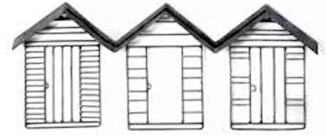What is SEO and do I need it?
Imagine the most amazing shop in the world. It sells great products and offers a first class, unique service; there is something for everybody and all at very competitive prices.
The staff are smart, polite and at your service! The shop looks beautiful, with a proper painted sign and not one of those printed, temporary signs; this is no squat shop. It could be the perfect shop, but there is a problem. The shop has been built in the middle of a desert. There are no signposts, or maps to help you find this shop and it does not appear in a shop directory. How are you supposed to find the ‘magic’ shop?
This shop is a fantasy and the scenario outlined above an unlikely one, but it does help to illustrate why we need search engine optimisation (and other related techniques.) People can find a real shop on the highstreet - even without any advertising - but a website without SEO is rather like a shop in the desert.
This is a rough guide on the basics of search engine optimisation (SEO).
What is SEO?
Put simply, this is the practice of improving the rank of a web-page on a given search engine results page (or SERP.)
Terminology
A few commonly used acroynwns to get you started.
WWW - World Wide Web. Millions of interconnected web-pages. Part of the Internet
SEO - search engine optimisation
SERP - search engine results page (e.g. Google, Yahoo, DuckDuckGo, etc)
URL - universal resource locator or link
Bot - search bot, Internet spider, crawler bot. There are good and bad bots!
Site - or website. A collection of pages, links and media (e.g. images, videos, etc)
Search term (or query) - the words that people enter into search engines
Searching the web
When you search the web using your favourite search engine, you are not doing a ‘live’ search of the WWW, but rather you are searching through a list of sites created by a given search engine; this list of sites is called an index. It is the job of the crawler bots or spiders to scan web-sites and generate an index of web-pages and then rank them, based on the criteria of a given search engine.
Content is king (or is it?)
This is a common term used when talking about SEO. It is the idea that the ranking of a web-page depends on the quality (and freshness) of the content. This is how it should be; surely we want the web to be made up of quality web-sites, containing accurate information. However, it's possible to have a poorly designed website, which is rarely updated and yet ranks highly in a search engine, by spending your budget on SEO and or a pay-per-click service. Content is obviously important, but there are many other factors that come into play.
Ranking
The term ranking refers to the position of a given page within the results page. A search engine will list hundreds of results for a given search term, usually in blocks of ten. How many of these pages will you sift through to find the website that you want? If the page is rank 1, it will appear on the first page; this is as good as it get's; but what if your website is ranked 100? It's unlikely that anyone will find this page. This is main objective of SEO, to improve the rank of a website.
Do I need SEO?
The short answer is that SEO is not essential. Consider a portfolio for an artist or a hobby website. You've built a website to share your work or information with friends or colleagues. In these cases, the link can be given to the people that need to know and it doesn't matter where your website ranks in the search engine index. If you build a stylish website, the bots will find your website eventually. In time your website will get added to an index and visitors may start to arrive at your site. This is completely acceptable for a lot of websites, but for some people or organisations, waiting for the bots to arrive is not an option. If you do not own a shop and your only way of selling a product or service is via the web, then SEO is essential.
In the next chapter we will look at some of tools and techniques available to the SEO engineer.
Sign-up to our mailing list to receive updates.
If waiting for the bots to crawl and index your website is not an option, then it is time to consider SEO.
In the next chapter we will take a closer look at some of the tools and techniques used in the practice of SEO. Sign up to our mailing-list to receive updates.

